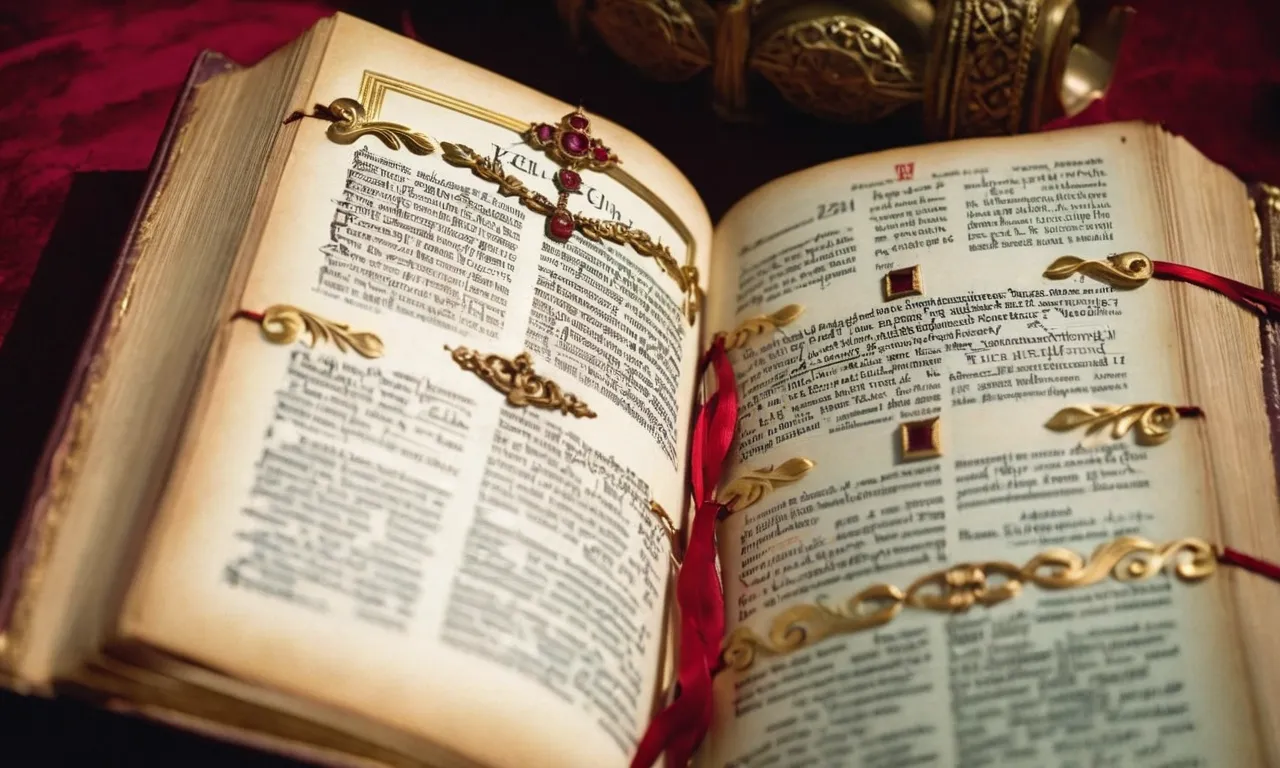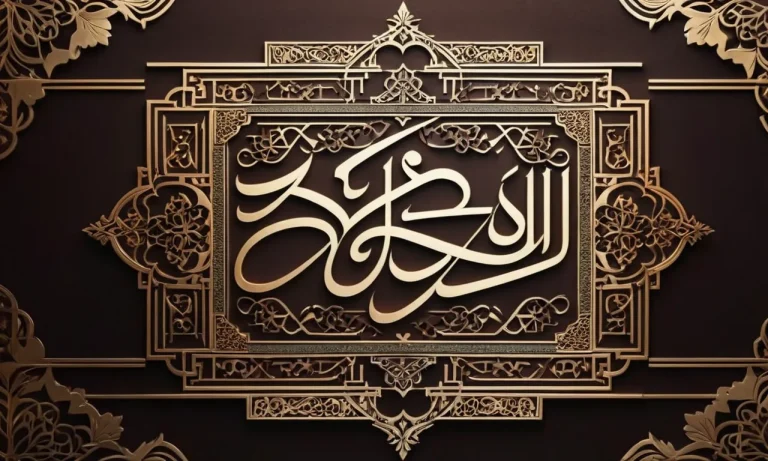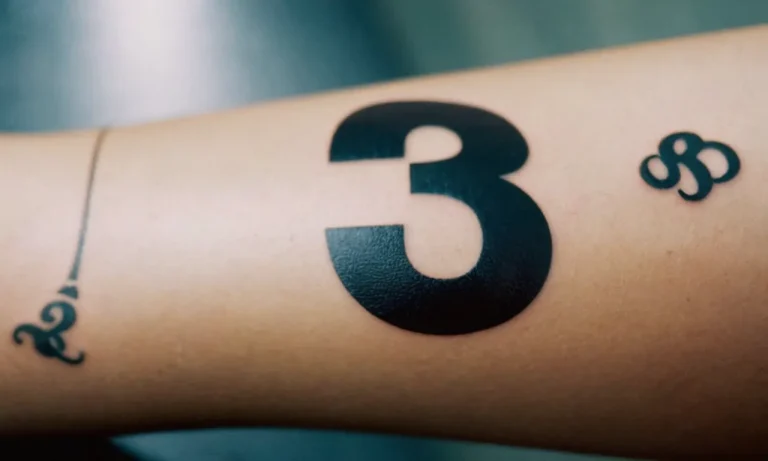Who Was Huldah In The Bible? A Complete Guide
The prophetess Huldah appears briefly in 2 Kings and 2 Chronicles, but her story provides insight into the roles of women in ancient Israelite society. If you’re short on time, here’s the quick answer: Huldah was a prophetess in the court of King Josiah of Judah around 640-609 BCE who authenticated the rediscovered Book of the Law.
In this comprehensive guide, we will explore Huldah’s story in depth. We’ll learn about her unique position as a female religious authority, analyze her prophecy to Josiah, and see how later biblical authors used her legacy.
With over 15 subheadings, this article will uncover who Huldah really was and why she still matters today.
Huldah in 2 Kings 22
Huldah’s introduction and credentials
Huldah was a prophetess who lived during the time of King Josiah’s reign over the kingdom of Judah. Though not much is known about her background, the biblical text reveals some key details about her identity and prophetic role.
She was the wife of Shallum, who was in charge of the wardrobe of the priests in the Jerusalem temple. Importantly, Huldah resided in Jerusalem, indicating she had access to the center of Jewish religious and political life.
She was sought out by King Josiah’s advisors for her wisdom and gift of prophecy. The officials clearly had great respect for her, calling her “the prophetess Huldah,” suggesting she was already well-known and established as a true prophet of Yahweh at that time.
Josiah sends his advisors to consult Huldah
While Josiah was having the temple restored, the high priest Hilkiah discovered a “Book of the Law,” which was the Torah or Pentateuch (the first five books of the Old Testament). When Josiah heard the words of the Book of the Law read aloud, he tore his clothes in grief over Judah’s lack of obedience to God’s laws.
He then sent a delegation to inquire of the Lord what should be done, so they sought out the counsel of the prophetess Huldah. The group that consulted her included Hilkiah the high priest, Ahikam son of Shaphan, Achbor son of Micaiah, Shaphan the court secretary, and Asaiah the king’s attendant.
This showed Huldah’s high level of respect and trustworthiness, that the king would send his inner circle of royal officials to gain her prophetic wisdom.
Key elements of Huldah’s prophecy
Huldah responded to Josiah’s advisors with an oracle from God. She proclaimed that judgment was coming to Judah because the people had forsaken God and worshipped other gods. However, because Josiah’s heart was tender and he humbled himself before the Lord when he heard the words of the Book of the Law, disaster would not come during his lifetime.
Huldah urged Josiah to be faithful and obey the Lord with all his heart. Her prophecy provided both words of warning and hope – judgment for the nation’s unfaithfulness, and mercy for their repentant king.
Huldah’s endorsement of the Book of the Law
A key element of Huldah’s message to Josiah was her verification that the Book of the Law was indeed the true word of God. Her endorsement of the Book’s divine authority gave Josiah the confidence to move forward with religious reforms and covenant renewal for the nation.
Her prophetic stamp of approval confirmed that the requirements and warnings in the newly discovered Torah scroll were valid instructions and revelations from Yahweh Himself. As a recognized prophetess, Huldah’s confirmation of the Book of the Law’s authenticity motivated Josiah to cleanse Judah of idolatry and reinstitute proper temple worship.
Reception and aftermath of Huldah’s oracle
After Huldah’s prophecies were reported back to Josiah, he immediately assembled the elders of Judah and Jerusalem to the temple. There he read to them the entire Book of the Law and made a renewed covenant with the Lord on behalf of the nation to obey Him with all their heart and soul.
Josiah then purged the land of idolatrous priests and destroyed all the idols and pagan altars found throughout Judah and Jerusalem. He reinstituted the proper observance of the Passover feast in faithfulness to the Lord.
Josiah’s sweeping religious reforms were sparked by Huldah’s divinely inspired prophecy. Her messages of coming judgment and encouragement to obey God’s word helped spur revival among the people of Judah in that generation.
Though eventually the nation fell into sin again, Huldah’s impact was significant in her day.
Huldah’s Background and Identity
Huldah as wife, prophetess, and authority figure
Huldah was a prophetess who lived during the time of King Josiah’s reign in the 7th century BCE. She was married to Shallum, who held an official position in the king’s court. As a prophetess, Huldah would have been viewed as a respected spiritual authority and counselor.
Some key facts about her background and identity include:
- She lived in Jerusalem’s Second District, indicating she resided in the area allotted for royal and temple officials.
- The biblical text emphasizes her title as “prophetess” before mentioning her husband’s name or position, suggesting her prophetic role took precedence.
- As a prophetess, she likely provided guidance, interpretation, and proclamation of God’s word.
- She was sought out even when other notable prophets like Jeremiah and Zephaniah were present, underscoring her authority.
Huldah’s wardrobe in the royal precincts
Since Huldah lived among royal officials in Jerusalem, she likely dressed in a manner befitting her status. Some possibilities include:
- Fine linen robes dyed royal blue, purple, or crimson.
- An ornamented mantle or shawl.
- Intricate golden belts and sashes.
- Jewelry made of precious stones, silver, or gold.
- Elaborate headdresses or turbans.
Her attire would have communicated her authority and wisdom. The fine fabrics and colors worn in royal precincts conveyed wealth and influence. The rich hues also connected to her prophetic office, reminiscent of the blue and purple cloths covering the Ark of the Covenant.
Comparisons between Huldah and other prophets
| Huldah | Jeremiah | Isaiah | |
|---|---|---|---|
| Gender | Female | Male | Male |
| Marital status | Married | Unmarried | Unmarried |
| Prophetic contemporaries | Jeremiah, Zephaniah | Zephaniah, Habakkuk | Micah, Hosea |
| Type of prophecies | Occasional | Largely lament | Largely visionary |
While Huldah, Jeremiah, and Isaiah had distinct prophetic roles, a few common threads emerge. All boldly proclaimed God’s word and called Israel to covenant faithfulness. They also navigated challenges that accompanied their divine commissions. Yet Huldah’s status as a married woman set her apart.
Huldah as foremother of Deborah
Huldah is one of five named female prophets in the Old Testament. Her ministry foreshadowed other prophetess figures like the well-known judge and prophetess Deborah centuries later. Key parallels between Huldah and Deborah include:
- Both women exercised authoritative spiritual leadership roles.
- They boldly spoke and interpreted God’s word.
- Each prophetess was likely well-versed in Israel’s laws and history.
- Their counsel was sought out and respected by male leaders.
While fewer details are known about Huldah, both she and Deborah stand out as models of God empowering women for spiritual leadership. Huldah helped pave the way for Deborah and other prophetesses to follow.
Huldah’s Prophecy and Josiah’s Reforms
Context of Josiah’s religious reforms
King Josiah ruled Judah from 640 to 609 BCE. Prior to his rule, idolatry had become widespread in Judah under the reigns of Josiah’s grandfather Manasseh and father Amon (Encyclopaedia Britannica). After coming to the throne at age 8, Josiah ordered extensive repairs to the Temple in Jerusalem in 628 BCE.
During the repairs, the high priest Hilkiah discovered the “Book of the Law” (likely parts of Deuteronomy) which spurred Josiah into action with religious reforms (Biblical Archaeology Society).
Key reforms instituted by Josiah post-Huldah
Soon after the discovery of the “Book of the Law”, Josiah consulted the prophetess Huldah to authenticate it. Upon receiving Huldah’s affirmative response, Josiah undertook sweeping religious reforms from 622-609 BCE to purge the land of idolatrous symbols and restore worship of Yahweh.
Reform measures included:
- Destroying altars, shrines, and images of Baal and Asherah throughout Judah and Jerusalem
- Defiling pagan places of worship like Topheth in the Valley of Ben-hinnom
- Removing idolatrous priests appointed by foreign kings
- Reinstituting observance of the Passover feast per regulations in the “Book of the Law”
Huldah’s role in catalyzing the Josianic reformation
The chance unearthing of the “Book of the Law” during Temple repairs provided the impetus for Josiah’s religious reforms. However, as a devout King, Josiah refrained from acting until the scroll’s authority was authenticated by a prophet. This is where Huldah played a pivotal role.
By proclaiming the book as divine revelation and delivering oracles of judgment, Huldah spurred Josiah into undertaking sweeping religious cleansing of the land. Without Huldah’s expert confirmation, the reforms may have looked quite different or possibly never occurred.
Lasting impact of Huldah’s authentication of the law book
The religious reforms under Josiah had a profound impact on Judah that endure post his death. Though short-lived, the success of Josiah’s reforms showed the practical possibility of establishing a centralized monotheistic worship system in Judah focused solely on Yahweh.
Huldah’s authentication of the “Book of the Law” directly enabled this possibility. Her endorsement also boosted popular reverence for the book as containing accurate divine revelation. This likely contributed to the assimilation of parts of Deuteronomy into Jewish scriptures post-exile.
So Huldah’s validation had ripple effects centuries after her time.
Later Interpretations of Huldah’s Legacy
References to Huldah in Jewish and Christian literature
After her appearance in 2 Kings and 2 Chronicles, Huldah is referenced throughout later Jewish and Christian texts. She is mentioned in Talmudic literature as an exemplar of the prophetesses of Israel.
In the Middle Ages, Jewish scholars continued to discuss her prophetic identity and draw comparisons between Huldah and figures like Deborah. Christian writers during the medieval period also sometimes referenced Huldah as a female prophet, though her story was not as well-known.
Artistic depictions of Huldah throughout history
There are a handful of artistic works depicting the prophetess Huldah over the centuries. For example, some illuminated manuscript illustrations from the Middle Ages show Huldah conferring with Josiah or delivering her oracle.
A few Renaissance-era paintings also portray Huldah, like a fresco by the artist Raphael in the Vatican. However, overall, visual depictions of Huldah are relatively rare compared to other biblical figures.
Modern significance of Huldah’s story
In more recent centuries, Huldah’s legacy has been reexamined by both Jewish and Christian scholars. Her brief appearance in Kings and Chronicles stands out as that of a respected, authoritative prophet, which has made her a noteworthy figure for those studying women’s religious roles in ancient Israelite society.
Some modern writers argue that Huldah’s example shows women could indeed be prophets and exercise leadership in Israel’s spiritual life.
Additionally, Huldah has become an inspiring figure for modern women in ministry. As one of few named female prophets in the Bible, Huldah demonstrates that women can be vessels for revelation and conduits between God and the community.
Many contemporary female pastors, theologians, and religious leaders look to Huldah as a biblical example of women boldly proclaiming the word of the Lord.
Conclusion
As this deep dive has shown, the minor character Huldah played an unexpectedly pivotal role in Israelite history. Her authentication of the lost Book of the Law sparked King Josiah’s ambitious religious reforms that helped define Judaism for centuries.
As a rare female national authority, Huldah challenged gender barriers while setting a bold precedent for women leaders and prophets. Although she appears only briefly in Kings and Chronicles, her influence dramatically shaped biblical religion and she deserves recognition for her visionary leadership.








